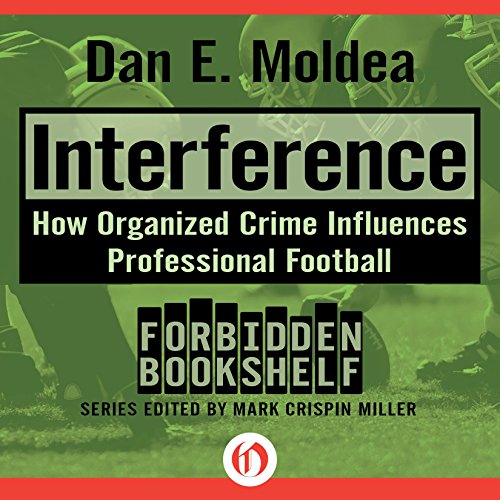This work was originally published in 1989, and yet, it is still spot on. Ever wonder if a NFL game you were watching might have been fixed? Or if a wide received dropped a pass on purpose, or ever wondered why a defender simply didn’t make the tackle? Investigative journalist[ Dan Moldea traces the routes of professional football and the influences of organized crime through the history of the league. Simply put, there has always been a tie between the NFL and organized crime. Let’s start from the beginning:
– Tim Mara pays $500 for the New York Giants in 1925, despite never watching a football game. Mara worked with one of crime boss Arnold Rothstein’s associates. Rothstein allegedly fixed the 1919 World Series.
– In 1933, race track owner Charles Bidwill purchased the Cardinals for $2,000.
– In July 1933, Art Rooney, who owned a race track, purchased the Pittsburgh franchise. Rooney was known to be a heavy gambler.
– Shortly thereafter, Rooney’s gambling friend Bert Bell bought the Philadelphia Eagles for $4,000.
– George Richards purchased the Portsmouth Spartans in 1934, before moving the team to Detroit and adopting the Lions team name. Richards was believed to have bet $50,000 on a football game. He was forced to sell his team in 1940 when it was learned he was paying college players to play for his team.
– Known gambler George Preston Marshall became the owner of the Washington Redskins.
– Mickie McBride, the founder of the Cleveland Browns, had ties to organized crime.
– In 1953, Saul Silberman of the Cleveland Browns was forced to sell the team for his gambling activities.
– Moldea exams the cloudy business dealings of Clint Murchison, the founder of the Dallas Cowboys, who would eventually go bankrupt.
– Leonard Tose, the owner of the Philadelphia Eagles, would lose his fortune gambling.
– Art Modell, who purchased the Browns in 1961, had ties to casinos and bookmakers. He also was a partner in a horse racing stable.
– Ralph Wilson, the owner of the Buffalo Bills, owned a stable of Thoroughbreds.
– Carroll Rosenbloom was the owner of the Baltimore Colts, before trading the franchise for the Los Angeles Rams in 1972. Moldea chronicles an alleged one million dollar wager he made on an NFL game. Rosenbloom was the Colts owner when the team was upset by Joe Namath’s New York Jets, who entered the contest as seventeen point underdogs. There are many, including “Bubba” Smith, who believed the game may have been fixed to give the AFL team credibility in the league after the merger. Rosenbloom drown in 1979 under suspicious circumstances, leading many to believe he met with foul play.
– The DeBartolos assumed ownership of the San Francisco 49ers in 1977, and the author details the ties to top organized crime figures.
The author also focuses on the players involved in gambling activities, such as Alex Karras and Paul Hornung, both would be suspended by the NFL for one year. The IRS investigated Len Dawson, and believed he had a secret bank account set up to receive bribes. Some believed Dawson was providing insider information to bookmakers. Dawson also submitted himself to a polygraph test. During the late 1960’s, many gambling books took Chiefs games off their boards due to the teams erratic play. Bobby Layne was accused on shaving points, fixing games, and even betting against his own team.
Additionally, “Interference” provides details on:
– The history of gambling on football, and the introduction to point spreads, and the rise of sports betting in Las Vegas
– The 1963 NFL betting scandal
– The super bowl ticket scalping episode involving the Los Angeles Rams
– The rise of gambling influencer Jimmy “The Greek” Synder, who received a presidential pardon from Gerald Ford
– The Saints hiring a dentist with organized crime ties
– The cozy relationship between Raiders owner Al Davis and mob figure Allen Glick.
– Questionable referee calls
– The PBS Frontline report that upset the NFL
– Joe Namath’s Upper East Side nightclub called Bachelors III
– The Reagan administration’s decision to focus on street crime, rather than on organized crime
Moldea’s research is meticulous, as he interviewed hundreds of subjects in the know for this book. Highly recommended.
©1989 Dan E. Moldea (P)2014 Audible Inc.
By: Dan E. Moldea
Narrated by: Andrew Ingalls
Length: 16 hrs and 27 mins
Release date: 07-14-14
Publisher: Audible Studios

